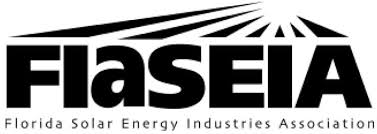Solar in Jacksonville: A battle won, not the war.
Jacksonville Electric Authority made the right decision last month when they tabled the proposal to reduce the buy-back rate for grid-tied solar in Northeast Florida. The fact that the board elected to wait for further study and review is the direct result of concerned citizens speaking out against the changes JEA initially proposed. Unfortunately, a larger battle looms on the horizon.
Vote NO on 1!
The utilities in Florida formed a coalition called Consumers for Smart Solar, circulated a petition through paid canvassers, and received approval from the Florida Supreme Court to place an amendment to the Florida Constitution on the ballot in November. The language of the petition, the amendment itself, and the marketing campaign behind them are misleading. The average consumer may read the amendment and assume that it does in fact benefit the growth of solar, when the reality is that it will place regulatory authority in the hands of the utilities themselves. This will not be good for consumers, despite what the marketing blitz claims.
From the Consumers for Smart Solar website:
BALLOT TITLE: Rights of Electricity Consumers Regarding Solar Energy Choice
BALLOT SUMMARY:
This amendment establishes a right under Florida’s constitution for consumers to own or lease solar equipment installed on their property to generate electricity for their own use. State and local governments shall retain their abilities to protect consumer rights and public health, safety and welfare, and to ensure that consumers who do not choose to install solar are not required to subsidize the costs of backup power and electric grid access to those who do.
The slick advertising campaign, with the slogan “Vote Yes on One, For the Sun,” touts the idea that with this amendment, citizens are guaranteed to be able to place solar on their homes. If Amendment 1 was actually good for homeowners and the rooftop solar industry, solar contractors would embrace the changes. Instead, this proposed constitutional amendment will drastically restrict the growth of residential rooftop solar. The amendment summary employs almost identical language to what JEA used in their rate change proposal, implying once again that those who do not have solar subsidize those who do. This claim is blatantly false, and has been proven so.
According to JEA themselves, net- metering accounted for a revenue disparity in 2015 of $127,000. There are 524 net-metered customers out of over 450,000 JEA customers. This breaks down to $2.82 per JEA customer per year. Contrast this number with the more than 4 million dollars in bonuses JEA paid out to employees last year.
Furthermore, JEA has not accurately assed the value of grid-tied residential solar because they do not account for the fact that the energy they buy is completely green. Utilities nationwide are under federal mandate to increase renewable capacity, reducing the amount of energy they produce from coal and natural gas. Rooftop solar does precisely this.
While many utilities around the country are mired in paradigms of the past and business models that have yet to adapt to the changing energy landscape, others like the OUC in Orlando incentivize and encourage solar. This is a striking contrast with JEA. Here is a link to the OUC website:
http://www.ouc.com/environment-community/solar
Follow the Money!
So who supports this amendment? The utilities themselves do, along with those directly allied with the fossil fuel industry. Consumers For Solar Choice receives money from suspicious bedfellows.
Utilities:
- Duke Energy, $355,000
- Florida Power and Light Company, $595,000
- Gulf Power Company, $380,000
- Tampa Electric Company, $556,000
- Powersouth Energy Cooperative, $30,000
Outside funding, which is not transparent comes from various organizations including 60 Plus Association. This group benefitted from at least 34 million dollars from the Koch brothers since 2010, and secret funding from Arizona’s largest utility to run ads opposing solar. Eventually they were exposed by Arizona Republic.
Floridians deserve better. Amendment 1 is deliberately misleading, and the fact that those who are pushing it are firmly aligned with the fossil fuel industry should let smart voters know that it’s not a good idea to give the fox the keys to the henhouse.














